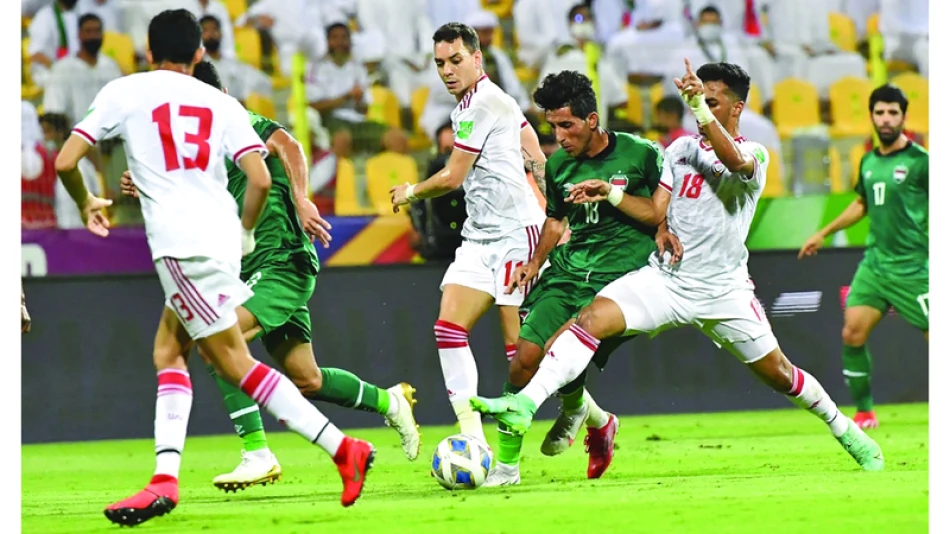
UAE's Al Abyad Have Better Odds to Qualify, Iraq Needs More Than Just Passion
Former Iraq and Ajman coach Abdul Wahab Abdul Qader believes the UAE national team has the upper hand against Iraq in their upcoming World Cup 2026 playoff matches. The two teams will face off in November, with the winner advancing to the intercontinental playoff for a spot at the World Cup.
The UAE will host the first leg on November 13 at Mohammed bin Zayed Stadium in Abu Dhabi, while Iraq gets home advantage for the return leg on November 18 in Basra. The aggregate winner moves one step closer to World Cup qualification.
Abdul Qader pointed to several technical issues plaguing the Iraqi team. "Iraq suffers from multiple technical problems on the pitch, especially in quick defensive transitions and weak reverse coverage," he told local media. "These errors appear both collectively and individually, causing the team to lose balance during matches."
He dismissed the notion that Iraqi players' passion and fighting spirit automatically translate to success. "Enthusiasm alone isn't enough. If it were, Iraq would have qualified easily in previous campaigns. But they usually fade after the first 10 minutes of play, losing what some consider their main weapon."
The former coach also downplayed Iraq's home advantage in Basra. "This is overblown. The crowd stays outside the green rectangle and doesn't provide real advantage. Strong players can perform under any crowd pressure, anywhere."
On paper, Abdul Qader believes the UAE should have already secured World Cup qualification without needing this playoff round. "The UAE has two or three quality players in each position, giving them significant technical depth compared to other teams. But small details prevented them from achieving expected results."
He praised the UAE's recent performance against Oman, highlighting their organization and tactical discipline. But he criticized strange technical decisions in the Qatar match, where four main squad players didn't get any playing time. "This created clear disruption in the team's playing system."
The biggest issue facing the UAE, according to Abdul Qader, has been the lack of technical stability. "Every match, the team played with a different formation without sticking to a permanent setup. This unhealthy phenomenon weakens team chemistry and affects overall performance, despite the UAE becoming one of Asia's best teams in terms of individual talent."
He placed major responsibility on coach Olario Cosmin for the team's psychological preparation. "The smart coach prepares his players for all possible scenarios during matches. It's like a parent preparing their child to study the entire curriculum so they can answer any exam question, rather than just covering parts of it."
Abdul Qader expects no psychological pressure on UAE players despite any controversy surrounding the previous qualifying round venues. "The players must hold onto their dream and their country's dream of reaching the World Cup," he said.
The winner of this two-leg playoff will face the fifth-placed team from South America's qualifying campaign for a final World Cup spot. With both teams desperate for their first World Cup appearance since 1986 (Iraq) and 1990 (UAE), these November matches carry enormous weight for football in both nations.
Most Viewed News

 Sara Khaled
Sara Khaled






